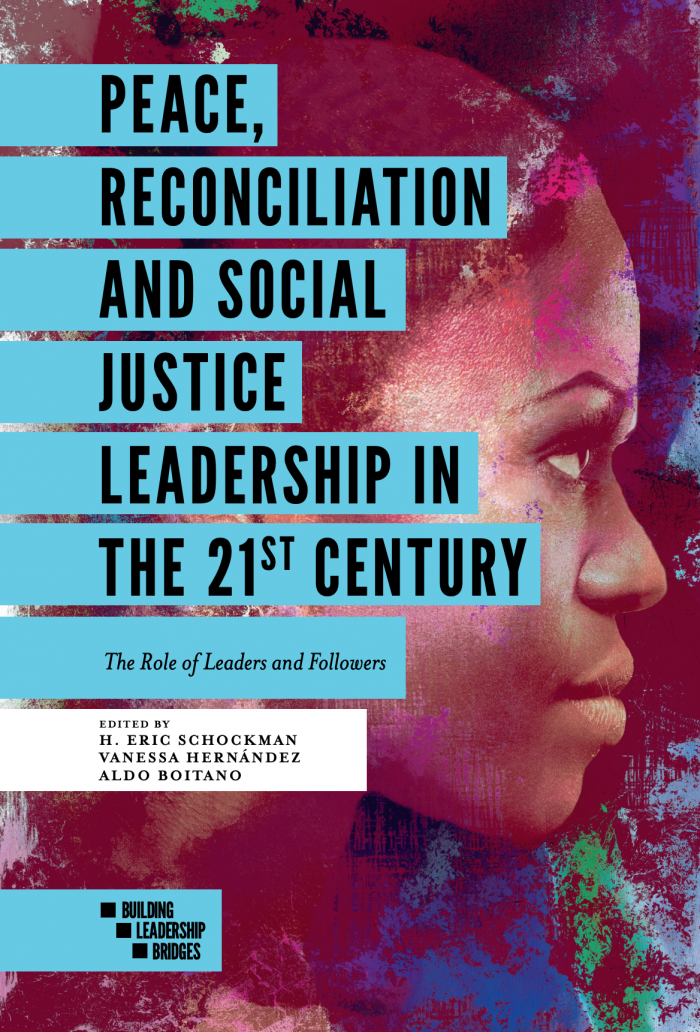Dr. H. Eric Schockman: Peace, Reconciliation and Social Justice Leadership in the 21st Century

“Conflicts and violence, repression and oppression have always been part of the world, resulting in situations where no one really wins and leading to stalemates that cause the degradation of economic order – and of the human condition.”
While that rather grim assessment opens Peace, Reconciliation and Social Justice Leadership in the 21st Century: The Role of Leaders and Followers – compiled and edited by Woodbury international relations professor Dr. H. Eric Schockman, along with fellow researchers Vanessa Alexandra Hernández Soto and Aldo Boitano de Moras — the 344-page volume from Emerald Publishing Group documents hope and analyzes the moral calculus that makes for reconciliation and conflict resolution.
In Dr. Schockman’s book, expert contributors explore the ways in which leaders and followers can bring forth pacifism, peace-building, nonviolence, forgiveness and social cooperation. Chapters focus on the role of positive public policies on the national and international order, and the role leadership and followership plays in harmonizing differences and personifying space. Contributors draw on lessons learned from post-conflict societies in Rwanda, Sri Lanka, Bosnia-Herzegovina, Chile and others, underscoring the reality that peace is a collective endeavor in which individual actions matter.Dr. Schockman and his colleagues bring together leading scholars and practitioners from the worlds of leadership, followership, transitional justice, and international law, crafting a blueprint of how people-led, bottom-up, grassroots efforts can foster reconciliation and a more peaceful world.
“Reconciliation is often regarded as an elusive and at times controversial concept,” the editors write. “Nevertheless, reconciliation does occur in fractured societies arising from conflict, repression, and widespread human rights violations. Reconciliation starts with the acknowledgement of our shared and common humanity and dignity. Forgiving means that we are acknowledging that the other side is also human and that their children and ours deserve to live safely and peacefully.”
In framing their analysis, Dr. Schockman, Hernandez and Boitano pose questions they regard as necessary precursors to reconciliation: “Can conflict be transformed without reconciliation? How should we work with the most traumatized vulnerable groups to ensure a bottom-up, community-led rather than a top-down healing process in creating viable communities? Can the emotions and feelings victims are left with be transformed into forgiveness that allows the violent experience to be re-conceptualized and redefined to find a new perspective on life?”
The ensuing chapters explore various strategies and experiences capable of fostering reconciliation among those once divided in the aftermath of conflict or violence. “The journey toward reconciliation and lasting peace is fraught with peril, challenges, and the many setbacks,” the editors observe. “However, we argue that it is not a utopian aspiration, and we can all play a meaningful role toward it.”
Peace, Reconciliation and Social Justice Leadership in the 21st Century: The Role of Leaders and Followers is available as an EBook from Google Books, Amazon Kindle, and Amazon Paperback.